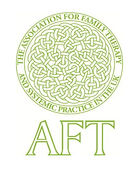

Narcissistic abuse
Family members, friends, colleagues and even therapists will often blame the person experiencing the abusive behavior for being too sensitive, not trying harder, being too anxious, not being more forgiving, staying, leaving, being judged as harsh for using the term narcissist, and not communicating more clearly. Some therapists will even describe that the client is whining, and have been only trained in models that show toxic patterns as reciprocal and based in cause and effect.
No wonder the person experiencing the abuse will also sometimes think these things about themselves. That is the insidous damage caused by the antagonizing narcissist.

Narcissistic Abuse and
Complex Post-Traumatic Stress Disorder

Recovery from a lifetime of covert or overt narcissistic abuse takes the support of a skilled therapist.
When we think of the classic Narcissist or NPD we think of :
A person who has an excessive interest in or admiration of themselves.
A sense of self-importance.
Preoccupation with power, beauty or success.
Can only be around people who are important or special.
Entitled.
Interpersonally exploitive for their own gain.
Arrogant.
Lack empathy.
Must be admired.
Envious of others or believes others are envious of them.
(Duke Health, 2023)
The Covert Narcissist on the other hand may display:
Display Passive-Aggressive behaviors like eye rolling when someone else is talking.
Playing the victim.
Focus on people's issues and misfortunes.
Use self-deprecating tactics.
Resentful and have second intentions.
Lack Empathy.
Hold and entitlement mentality.
Insecure and have low self-esteem.
Afraid to be discovered or humiliated.
Fly under the radar disguised as amiable.
Have poor emotional empathy and self-awareness.
Fail to develop a health sense of self during childhood.
Gaslighting.
Avoid personal responsibility.
Deflect from their own faults.
Very sensitive to criticism.
Having a parent, caregiver or close relationship with a narcissist can be very confusing and very damaging and is now recognized as a form of abuse/neglect.
It can be vital to have the support of a highly skilled mental health professional to help navigate the confusion, loneliness and sometimes Complex Post-traumatic Stress that can ensue.





Narcissistic abuse is very disorienting and confusing for the victim. Especially when that narcissist is a parent or a spouse. Often friends and other family members are not trained or helpful in assisting someone navigate these difficult complexities.

AAMFT Clinical Fellows (the highest level of therapist recognized by the American Association for Marriage and Family Therapy) and LMFTs have specific training in relationships and family systems, when combined with a mental health therapy background and license, to better treat victims of narcissistic abuse.
AFT - Association for Family and Systemic Psychotherapy in the UK.
1 hr
175 US dollars


